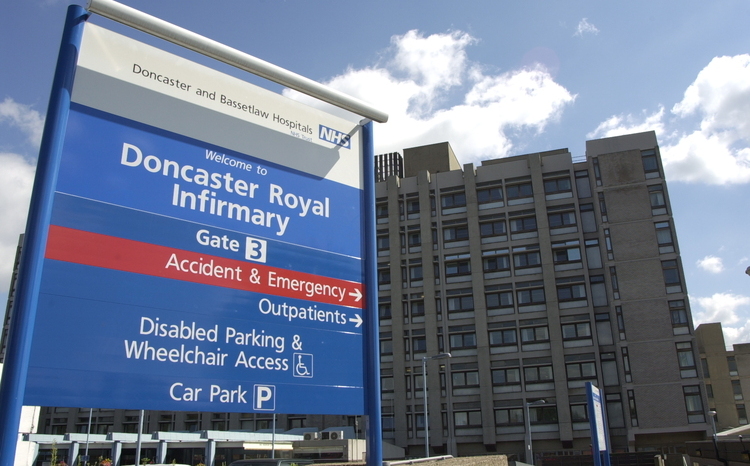Integrated care will only succeed if 3 comms challenges are addressed
- 8 March 2022

As pressures on the system continue to grow and Integrated Care Systems take shape, the expectations on integrated care are higher than ever, says Jacob Haddad, CEO and co-founder of accuRx. But why have decades of attempts at integration not yet succeeded? To deliver integrated care, frontline staff in different services need the means to work as one team.
Having spent much of our time shadowing staff on the frontline, we’ve seen the challenges they face. The phones ring non-stop, piles of letters need to be opened and coded, inbound messages come from different sources, it takes weeks if not months to contact a different service for advice, referrals, and more. Patients are often left with an inconsistent experience, having to retell their story time and again.
All of this comes down to a breakdown in communication across the health system. To truly deliver integrated care, we should focus on implementing the processes and the technology that will address these three key communication challenges.
Patient communication isn’t consistent across the healthcare system
Today, GPs are using technology to communicate with patients in ways they couldn’t before. Just two years ago, if you were concerned about a mole, you would call your GP practice and book an appointment, usually for a few weeks’ time. Now, when you call almost any practice with the same need, they’ll send you a message to reply with a photo of the mole to be able to quickly determine the best route of care. Pretty much all communication with patients can be done with the click of a button, better connecting GPs and their patients.
The pandemic exposed the latent need to make communication easier across the healthcare system and accelerated the urgency to address it. We saw change in general practice enacted far quicker than any of us could have anticipated, and we’ve seen innovation, rapidly re-shaping how they work – everything from communicating test results and advice to giving a more detailed care plan or monitoring symptoms remotely.
The relative ease of patient communication in general practice has made the communication challenges in some outpatient services even starker, as they grapple with growing waiting lists.
This is where simple and intuitive technology that fits into the existing workflow can help frontline staff communicate with patients, many of whom now expect immediate and digital communication – from regularly checking in with a patient with mental health needs to sending an emergency referral directly to a patient going to A&E.
Different healthcare services are disconnected
Providing care requires many levels of communication, from speaking to a patient about their symptoms to referring them, getting second opinions, and coordinating care across services, patients and their families.
To deliver integrated care, staff in different roles across all services need the means to work as one team around a patient. This is made challenging by the current routes of communication – be it sending a letter, calling the hospital switchboard, or waiting on hold to speak to the reception team at a GP practice. This communication isn’t typically recorded anywhere.
If everyone involved in a patient’s hospital discharge was in a single Whatsapp group or Slack channel, things would happen pretty quickly. Clearly, this isn’t scalable, nor integrated with existing systems and workflows, but the ease of use and real-time messaging is exactly what’s needed.
Just like communicating with a patient, this communication between healthcare staff needs to be effortless. Staff are busy and are often presented with a structured form or process to ask a simple question. They often find themselves repeating information that’s readily available in the medical record.
By providing simple solutions that enable communication between services, and better access to patient information, healthcare staff can innovate and connect more easily as a team to care for their patients.
If staff can easily find the right service, whether it’s one that’s already involved in a patient’s care like their GP or care home, or a new service that isn’t yet known to the patient, they’ll be able to provide faster and more seamless care. We’ve launched accuMail to help NHS staff send secure messages to other professionals about a patient that automatically save to their record. It’s now actively used in over 1,000 GP practices to find other services and contact them in two clicks, without needing to know their contact details.
There isn’t one source of truth for communication
Medical records have been around for a while – first on paper, and now (mostly) electronic. But they’re still optimised for documentation and record-keeping, not for collaboration and communication. Most record systems only support communication outside of the immediate team in the form of a repository of letters sent to the patient and other services.
We believe that communication becomes really valuable when you can see it all in one place for a given patient, providing far superior continuity of information. This means we don’t have to rely on patients repeating themselves or carrying around a folder of letters to explain their journey so far.
Even the GP record, the richest summary of a patient’s healthcare, is still hard to access in many parts of the country. Healthcare staff are often required to find and call a patient’s GP practice just to find out basic information, such as medication and test results, to be able to make an informed decision. We’re working on a way to improve access to patients’ GP records by requesting informed patient permission via a secure code.
Having one single source of truth for all communication with and about a patient will inform key decisions, provide more consistency and patient awareness of their care, and transform the way healthcare is delivered.
As more people are involved in a patient’s care than ever before, delivering integrated care will only be achievable when everyone involved in a patient’s care has the means to communicate so they can work together as one connected and collaborative team.
You can catch Haddad at Digital Health Rewired 2022 where he will be speaking on the Innovation Stage.
His session will take place at 10.05am on Wednesday 16 March.
Taking place on March 15-16 at the Business Design Centre in London, Digital Health Rewired 2022 is a conference and exhibition which brings together all parts of the digital health community to celebrate the best of digital, data and innovation in health and care.
You can register here to secure your place at Rewired 2022.




